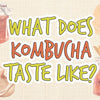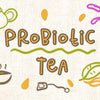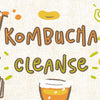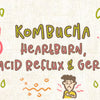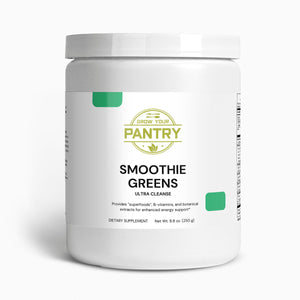Probiotic Tea | For Buyer's Drinker's and Brewer's
What is Probiotic Tea?
Probiotic tea simply refers to tea leaves that are enriched with select probiotics. The probiotics used for such processes have to be heat resistant so that they can survive the tea steeping process. In this article, we are going to take a detailed look into probiotic tea, its benefits, and possible side effects. We'll delve into the differences between probiotic tea and kombucha, the best probiotic teas for home brewing, health considerations and common questions too.
Not Much Time? Skip To What You'd Like To Learn...
-
Probiotic Tea Vs. Kombucha
-
Probiotic Tea Side Effects
-
Probiotic Tea Brands
-
Probiotic Tea Health benefits
-
Does Probiotic Tea work?
-
Probiotic Supplement Alternatives
-
Best Probiotic Tea Flavors
-
Common Questions
Probiotic Tea Vs. Kombucha
Kombucha is a fermented drink that’s prepared using freshly brewed and sweetened tea, which is then aerobically fermented using a kombucha SCOBY. Probiotic tea relies on a selective blend of probiotics, which are selectively grown before they are added to the tea leaves. It, therefore, does not require fermentation as the probiotic culture is already present, so all you have to do is brew the tea.
1. Type of Culture
Kombucha contains a symbiotic culture of both yeast and bacteria cells. These are live and continue to grow even after fermentation, thus delivering live probiotics when consumed. On the other hand, probiotic tea contains only a specific culture that has been isolated, and its spores added to the tea leaves.
The spores are adapted to become inactive when exposed to harmful conditions such as hot temperatures during tea brewing. Once consumed, the spores reactivate and go on to grow and provide the specific probiotics.
2. Preparation Time
Raw kombucha requires at least 7 to 14 days to ferment while probiotic tea doesn’t require fermentation, just brew and steep the tea leaves, and the brew will be considered as ready to drink.
3. Overall Effect
Raw kombucha populates the gut system with its live probiotics immediately, while probiotic tea needs a few days in order for the spores to grow into a live culture. Kombucha also contains a wide variety of probiotics, which have an overall more significant effect on the gut bio compared to probiotic tea, which only relies on a single species. Reference: NCBI.
Probiotic Tea Side Effects
1. Digestive Side Effects
The consumption of yeast-based probiotic tea increases constipation and gas, which leads to bloating. The probiotics can also trigger diarrhea in some cases. To reduce these side effects, probiotic tea should be consumed in small amounts and gradually increased as the body adapts.
2. May Trigger Headaches
Probiotic tea contains molecules that can trigger headaches. These compounds are produced during microbial growth, meaning they are always present in probiotic cultures. The culture can also produce histamine, which is a molecule that causes blood vessels to dilate and resulting in allergy symptoms such as trouble breathing, swelling, itching, watery eyes, and runny nose.
3. Can Increase Infection Risk
People with suppressed immune systems such as pregnant mothers and chemotherapy patients stand a considerable risk of contracting a bacterial or fungal infection from consuming probiotic tea. This is because the probiotics in the tea may contain opportunistic bacteria or yeast which can enter the bloodstream and cause infections.
Probiotic Tea Brands
1. Bigelow

Check The Price Here
Flavors: plantation mint, lemon lift, constant comment, English tea time, earl grey, and vanilla chai
Tea leaf varieties: black tea, green tea, herbal tea, oolong tea, and decaf
Bigelow tea is a family-owned tea brewing company that’s been operating for the last 75 years in the US. Over the years, the firm has perfected its brewing recipes and continues to tweak them to fit the ever-changing customer needs.
Their probiotic tea relies on a combination of Ganeden BC30 probiotics. Cinnamon is also added to the drink as it stimulates the gastro tract.
2. Super Organics Tea

Check The Price Here
Flavors: awake black tea, beauty boost green tea, cardio support coffee, metabolism oolong tea, tea variety pack
Tea leaf varieties: black tea, green tea, and oolong tea
Super Organics has a line up of organic tea that’s boosted with superfoods and probiotics. The firm relies on superfoods like orange, yerba mate, rose, and Garcinia Cambogia. These naturally increase your metabolism when consumed and can aid in weight loss.
Super organics tea gets enhanced with probiotics in the form of bacillus coagulans culture.
3. The Republican of Tea

Check The Price Here
Flavors: cinnamon, chicory root
Tea leaf varieties: rooibos
While the republican of tea bland is well known for its tea variety offering, their probiotic tea offering is somewhat limited. The firm currently offers the rooibos tea probiotic boosted herbal blend. Rooibos provides a caffeine-free alternative to tea leaves, allowing the drink to be consumed any time of the day.
The firm uses ganedenBC30 probiotics to enrich the rooibos tea. This has an overall positive effect on gut bio and supporting digestive health. Chicory root and cinnamon are also added to the tea.
Probiotic Tea Health benefits
1. Potential Source Of Probiotics
Probiotic tea contains a selected culture of bacteria and yeast, which serve as a potential source of probiotics. These help in rebalancing the gut bio, which is linked to numerous health benefits such as weight loss, improved immune function, and digestive health. Source: NCBI.
2. Contains Health Benefits Of Tea Leaves Used
The tea brewing process infuses the drink with antioxidants and vitamins found in the tea leaves. These nutrients play a vital role in promoting the development of a healthy immune system and the removal of toxins from the body. Tea leaves have also been shown to aid in weight loss. Source: NCBI.
3. Antibacterial Properties
Probiotic tea contains polyphenols from tea leaves. When consumed, the antibiotic effect eliminates harmful bacteria in the gut system. This has a calming effect on the digestive system, thus easing stool movement and related gastrointestinal disorders. Source: NCBI.
Does Probiotic Tea work?
Probiotic tea has an overall positive effect on the digestive system. The probiotics also have a modest anti-inflammatory effect on top of the immune-stimulating properties. Probiotic tea is undoubtedly safe for consumption, and its added probiotics play a role along with the health properties of the tea leaves used.
Probiotic Supplement Alternatives
Probiotic supplements do not have natural amounts of live probiotics. A more natural alternative would include a population of naturally grown probiotics. Some of the healthy probiotic supplement alternatives include:
1. Raw Kombucha
Raw kombucha contains a symbiotic culture of yeast and bacteria that get introduced during fermentation. Raw kombucha is a rich source of billions of live probiotics and antioxidants found in black tea.
2. Sauerkraut
Sauerkraut is prepared by anaerobically fermenting cabbage. The dish is not only rich in probiotics but it also contains lactic acid – a byproduct of sugar breakdown by the lactobacillus.
3. Kimchi
Kimchi is a probiotic-rich spicy dish that’s prepared by fermenting cabbages, vegetables, and spices. The dish also contains vitamins and antioxidants from the vegetables and cabbages.
Best Probiotic Tea Flavors
1. Lemon Ginger Probiotics Herbal Tea

Check Latest Price
Lemon ginger probiotic tea relies on a blend of herbs with added probiotics. In most cases, the probiotics are heat resistant, enabling them to survive the tea steeping process. The combination of lemon, ginger, and cinnamon gives the herbal tea a spicy flavor.
2. Probiotic Green Tea
 Check Latest Price
Check Latest Price
Prebiotic green tea has a blend of green tea leaves, specially selected probiotics, and a secondary flavor such as turmeric, pomegranate, wild blueberry, and other fruit-based flavors.
Common Probiotic Questions
What Are Probiotics?
Probiotics are live bacteria and yeast cells that have a positive impact on the gut bio and an overall positive effect on the immune system.
What Are The Side Effects Of Drinking Kombucha?
Kombucha contains dissolved carbon dioxide gas, which can cause digestive distress and bloating. Kombucha can also contain caffeine, which can cause loss of sleep and fatigue. The live probiotics in the drink can also lead to a bacterial infection in weak immune systems.
Are The Probiotics In Tea Effective?
Yes, the added probiotics in the tea have an overall positive effect on the body while also containing the benefits of the tea leaves.
What Are The Dangers Of Taking Probiotics?
Probiotics may lead to bacterial and fungal infections in cases of a weakened immune system.
Can You Take Probiotics Every Day?
Yes, probiotics can be taken on a daily basis. If it's your first time, you should seek medical advice on the best amounts to consume per day.
Can You Drink Tea With Probiotics?
Yes, it's perfectly healthy to drink tea infused with probiotics. The combined health benefits from the tea leaves and probiotics play a vital role in improving the overall health.
Does Drinking Alcohol Kill Probiotics?
Yes, alcohol has an antibacterial effect that kills probiotics, and it's, therefore, advisable to reduce alcohol consumption while taking probiotic supplements.
What Time of The Day Should You Take Probiotics?
To maximize the benefits accrued with probiotics, its advisable to take them in the morning or 30 minutes before meals.
What Foods Kill Probiotics?
Foods with antimicrobial properties can kill probiotics. These include garlic, onions, and horseradish.
Should I Take Probiotics On An Empty Stomach?
Yes, it's perfectly healthy to take probiotics on an empty stomach.
Does Boiling Tea Kill Probiotics?
Most of the probiotics used in probiotic tea are heat resistant and will withstand the temperatures involved in boiling.
Should you Take Probiotics with Food?
It's recommended taking probiotics at least 30 minutes before taking food.

 Check Latest Price
Check Latest Price 
